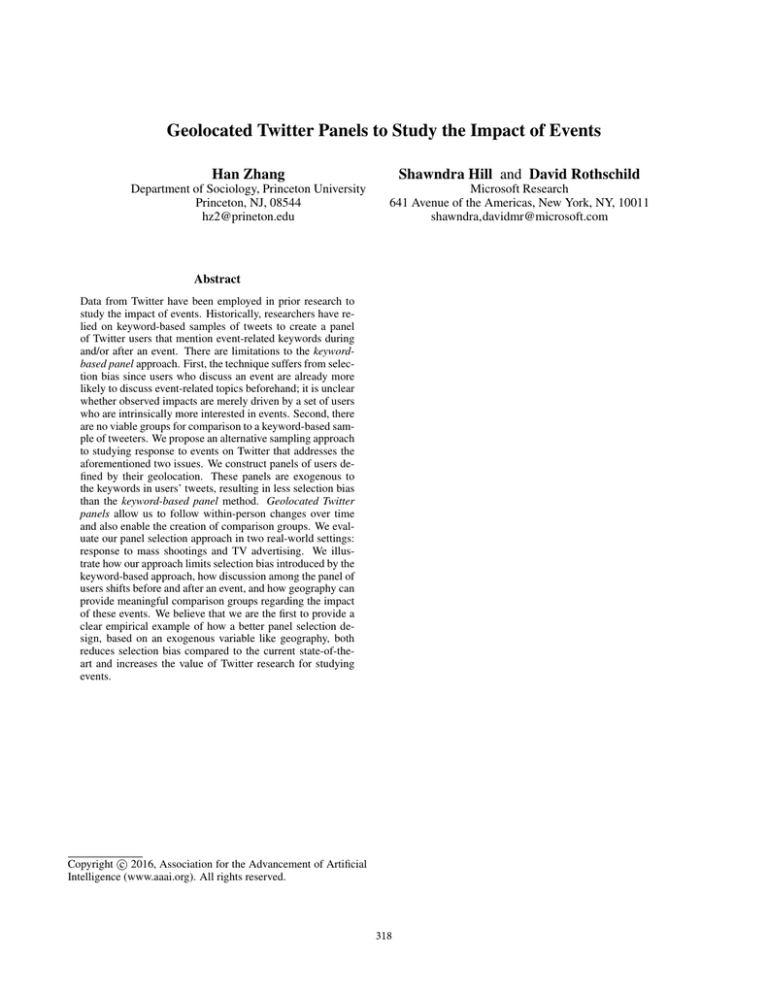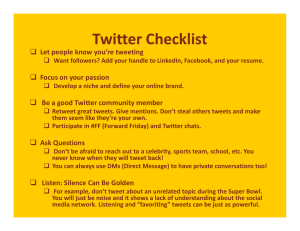
Geolocated Twitter Panels to Study the Impact of Events
Han Zhang
Shawndra Hill and David Rothschild
Department of Sociology, Princeton University
Princeton, NJ, 08544
hz2@prineton.edu
Microsoft Research
641 Avenue of the Americas, New York, NY, 10011
shawndra,davidmr@microsoft.com
Abstract
Data from Twitter have been employed in prior research to
study the impact of events. Historically, researchers have relied on keyword-based samples of tweets to create a panel
of Twitter users that mention event-related keywords during
and/or after an event. There are limitations to the keywordbased panel approach. First, the technique suffers from selection bias since users who discuss an event are already more
likely to discuss event-related topics beforehand; it is unclear
whether observed impacts are merely driven by a set of users
who are intrinsically more interested in events. Second, there
are no viable groups for comparison to a keyword-based sample of tweeters. We propose an alternative sampling approach
to studying response to events on Twitter that addresses the
aforementioned two issues. We construct panels of users defined by their geolocation. These panels are exogenous to
the keywords in users’ tweets, resulting in less selection bias
than the keyword-based panel method. Geolocated Twitter
panels allow us to follow within-person changes over time
and also enable the creation of comparison groups. We evaluate our panel selection approach in two real-world settings:
response to mass shootings and TV advertising. We illustrate how our approach limits selection bias introduced by the
keyword-based approach, how discussion among the panel of
users shifts before and after an event, and how geography can
provide meaningful comparison groups regarding the impact
of these events. We believe that we are the first to provide a
clear empirical example of how a better panel selection design, based on an exogenous variable like geography, both
reduces selection bias compared to the current state-of-theart and increases the value of Twitter research for studying
events.
c 2016, Association for the Advancement of Artificial
Copyright Intelligence (www.aaai.org). All rights reserved.
318


